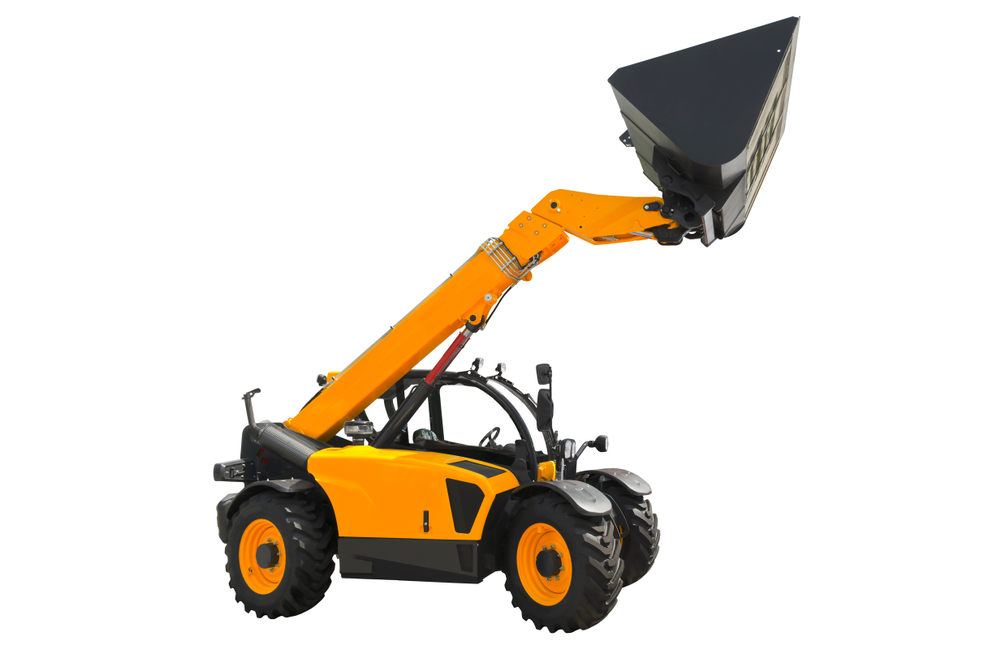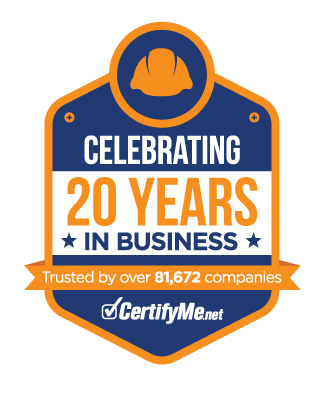Telescopic Forklift: Definition, Operation, and Certification Requirements
Posted by: admin on April 24, 2025
 Telescopic forklifts, widely known as telehandlers, play an essential role in construction, agriculture, and industrial work. These machines provide versatile lifting solutions where standard forklifts cannot reach. Understanding the importance of certified operators ensures these powerful tools are used safely and efficiently. Businesses investing in telescopic forklifts need properly trained staff to maximize the equipment’s capabilities.
Telescopic forklifts, widely known as telehandlers, play an essential role in construction, agriculture, and industrial work. These machines provide versatile lifting solutions where standard forklifts cannot reach. Understanding the importance of certified operators ensures these powerful tools are used safely and efficiently. Businesses investing in telescopic forklifts need properly trained staff to maximize the equipment’s capabilities.
Understanding Telescopic Forklifts
Telescopic forklifts feature a single boom that extends outward and upward, enabling operators to lift loads at impressive heights and distances. Compared to traditional forklifts, telehandlers offer superior reach and flexibility. Industries such as construction, farming, and warehousing rely heavily on these machines for tasks that demand more than standard forklift models can handle.
What Is a Telescopic Forklift?
A telescopic forklift, or telehandler, combines the lifting power of a crane with the maneuverability of a forklift. Instead of a vertical mast, a telehandler uses a telescopic boom that can pivot and extend. Common applications include placing loads on rooftops, moving heavy pallets across uneven terrain, and assisting in agricultural lifting tasks.
History of Telescopic Forklifts
The journey of the telescopic forklift began in 1977 when JCB introduced the first model. Merging features of cranes, backhoes, and forklifts, this new equipment revolutionized material handling across multiple industries. Soon after, manufacturers like CAT, Bobcat, and JLG expanded the options available, helping telehandlers become a staple in demanding work environments.
How to Operate a Telescopic Forklift
Operating a telehandler demands a strong understanding of balance, weight distribution, and machine control. Keeping the center of gravity stable and managing boom angles correctly is critical. Joystick controls allow operators to raise, lower, extend, and retract the boom. Outriggers and thumb rollers provide further stability and precision when working with varied loads. Certification courses provide detailed instruction on these techniques.
Common Telescopic Forklift Attachments
- Carriages: Attachments like tilt, swing, and fork-positioning carriages allow operators to customize load placement.
- Buckets: Essential for transporting loose materials such as dirt, gravel, or mulch.
- Truss Booms: Increase vertical reach for moving heavy loads higher.
- Pallet Forks: Enable traditional pallet lifting for warehouse applications.
- Man Baskets: Secure baskets that allow workers to be lifted for elevated tasks, requiring a spotter for safety.
OSHA Requirements for Telescopic Forklift Certification
Every telescopic forklift operator must complete OSHA-compliant certification under 29 CFR 1910.178. Certification includes instruction on telehandler safety, attachments, stability, and hazard recognition. Operators must renew their certification every three years to stay compliant and keep safety skills sharp.
Consequences of Skipping Certification
Failing to certify operators puts companies at serious risk. OSHA fines for noncompliance can reach tens of thousands of dollars. Beyond financial penalties, untrained operators increase the likelihood of accidents, equipment damage, and workplace injuries. Maintaining certification protects both businesses and employees.
Telescopic Forklift FAQs
How High Can a Telehandler Reach?
Some telehandlers reach up to 65 feet depending on the model.
How Much Weight Can a Telescopic Forklift Lift?
Heavy-duty telehandlers can lift more than 20,000 pounds safely.
Can Telehandlers Be Driven on Public Roads?
Yes, provided they are properly registered and licensed according to state and local regulations.
What Sizes Are Available for Telehandlers?
Sizes vary significantly; smaller models suit indoor warehouse work, while larger ones handle outdoor construction projects.
Can Telehandlers Lift People Safely?
Yes, using OSHA-approved man baskets with a dedicated operator stationed behind the controls.
Get OSHA-Approved Telehandler Training with CertifyMe
CertifyMe offers fast, affordable telescopic forklift certification designed for full OSHA compliance. Our online training program teaches operators everything they need to safely handle telehandlers, attachments, and workplace challenges. With 24/7 access, free three-year renewals, and nationwide acceptance, CertifyMe makes operator certification simple, convenient, and cost-effective.
Welcome to CertifyMe.net
CertifyMe.net has offered online forklift certification since 1999. With Our Convenient online program. your employess can earn their certification in an hour or less.
Browse Online Certifications:
This low-cost program can be compeleted anytime, anywhere!






